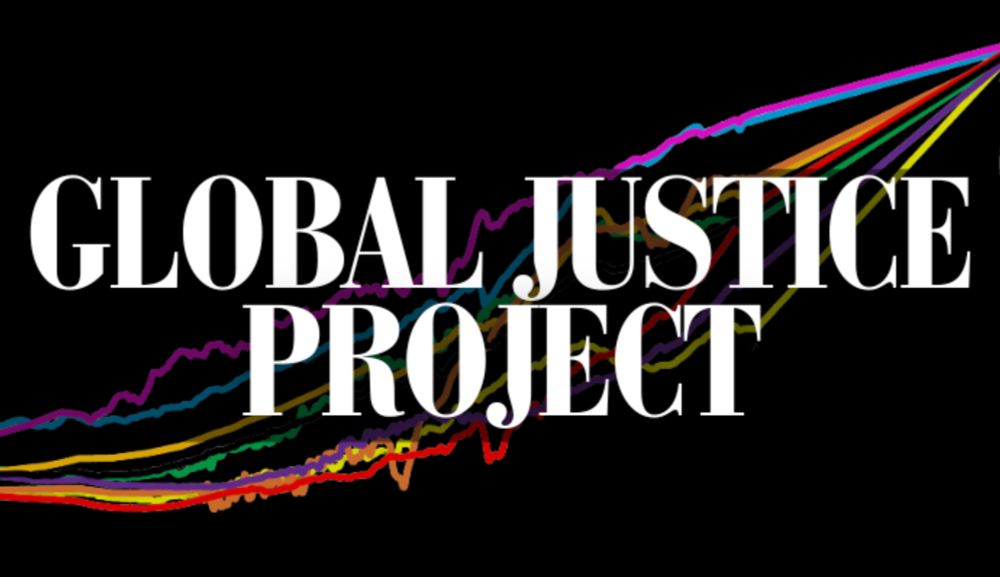Professor at EHESS & PSE
Co-Director, World Inequality Lab
inequalitylab.world | WID.world
http://piketty.pse.ens.fr/
Thomas Piketty is a French economist who is a professor of economics at the School for Advanced Studies in the Social Sciences, associate chair at the Paris School of Economics (PSE) and Centennial Professor of Economics in the International Inequalities Institute at the London School of Economics (LSE). .. more

From now to June 2026, the #GlobalJusticeProject will help provide answers.
inequalitylab.world/en/global-ju...
[1/5]🧵
Reposted by Thomas Piketty, Branko Milanovic

These biases translate into lower market valuations for darker-skinned players.
Read more ▶️ wid.world/news-article...
Reposted by Serge Guimond

thomaspiketty.wordpress.com/2026/02/03/e...
Reposted by Thomas Piketty, Garry Peterson
✨ Inequality placed on the agenda of the 𝗚𝟮𝟬 𝘀𝘂𝗺𝗺𝗶𝘁
✨2025 𝗖𝗹𝗶𝗺𝗮𝘁𝗲 𝗜𝗻𝗲𝗾𝘂𝗮𝗹𝗶𝘁𝘆 𝗥𝗲𝗽𝗼𝗿𝘁 published in October
✨2026 𝗪𝗼𝗿𝗹𝗱 𝗜𝗻𝗲𝗾𝘂𝗮𝗹𝗶𝘁𝘆 𝗥𝗲𝗽𝗼𝗿𝘁 published in December
✨27 Working Papers authored by 78 researchers
...and more!
📖 Flip through our report heyzine.com/flip-book/22...
Reposted by Thomas Piketty
This 3rd edition includes improved or new:
🔹macro aggregates
🔹income and wealth definitions
🔹data-quality flags
🔹sections on wealth distribution and gender inequality
Reposted by Thomas Piketty

🗣️ Avec @lucaschancel.bsky.social et Anne Debrégeas
🎙️Animé par @jadelindgaard.bsky.social
📅 Jeudi 29 janvier, 19h
Entrée libre. Inscription conseillée ▶️ inequalitylab.world/fr/event/a-l...
@attac.org
Reposted by Thomas Piketty

Do debates lean more on emotional fairness arguments or analytical externality arguments?
And what type of argument convinces who?
New study by @mortenstostad.bsky.social, M. Lobeck & C. de Meulenaer ▶️ wid.world/news-article...
Reposted by Thomas Piketty

où nous discutons tendances historiques avec R. Loubes, @thomaspiketty.bsky.social et A.-S. Robillard: www.lemonde.fr/idees/articl...
Reposted by Thomas Piketty

Financial flows to north from south now exceed 1% of global GDP — more than all development aid.
Piketty explains how debt & reserve currencies favor the North and what could actually change it.
🎧 Tune in: www.equals.ink/p/the-great-...

thomaspiketty.wordpress.com/2025/12/16/p...
This report benefited from the support of the @undp.org and the European Union.
Reposted by Prokla Redaktion

wir2026.wid.world/download/

It comes at a challenging political time, but is more essential than ever to continue the historic movement toward equality.
Explore the report ▶️ wir2026.wid.world

👇Share this thread, share the report!
www.youtube.com/watch?v=R67u...
Reposted by Thomas Piketty, Vincent Tiberj, Xavier Molénat

"L'extrême concentration des richesses mondiales"
3 article à lire pour découvrir en avant-première Le Rapport sur les inégalités mondiales 2026
www.lemonde.fr/economie/art...
Reposted by Thomas Piketty

New study by A. Gethin & L. Czajka shows that inequality in 2019 was as high as in 1993.
Racial inequality reduced only because top 10% Black incomes surged.
▶️ wid.world/news-article...
Reposted by Thomas Piketty, Juan Rocha, Olúfẹ́mi Táíwò

⚠️The bottom 50% wil bear ¾ of all income losses from climate change by 2050.
Read more in the report 🔗 wid.world/news-article...


